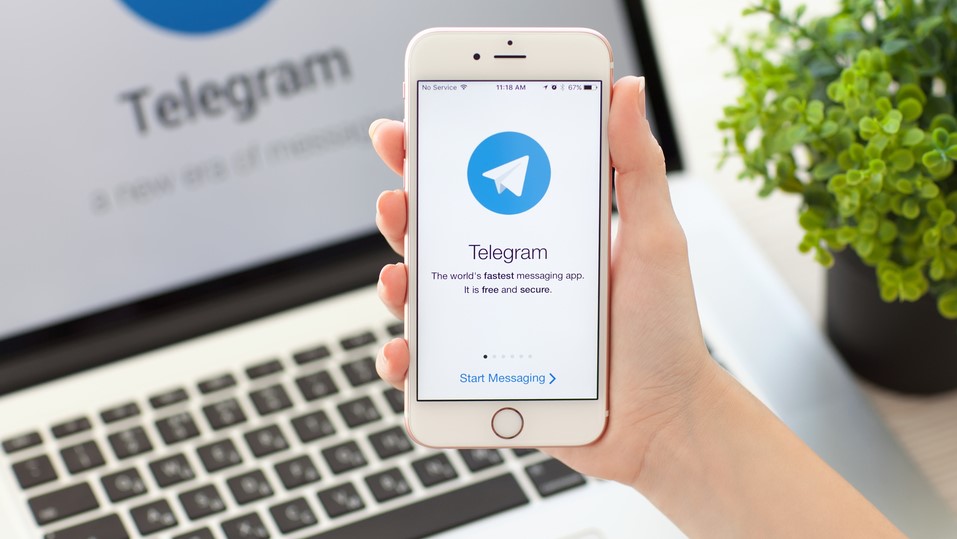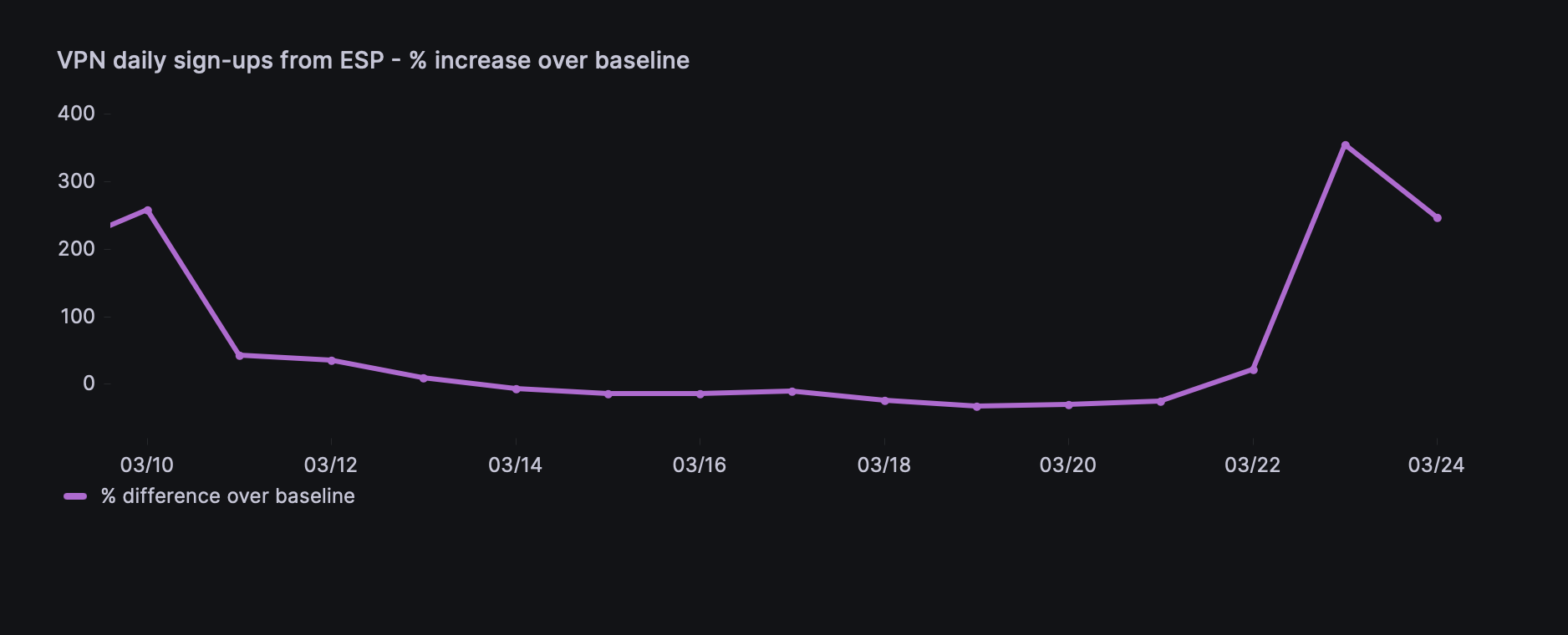Spain halts Telegram ban, for now—here's how a VPN can help
A VPN can help you stay connected in case of blocking

Sign up for breaking news, reviews, opinion, top tech deals, and more.
You are now subscribed
Your newsletter sign-up was successful
On Friday, March 22nd, one of Spain's High Court judges ruled out a temporary ban on the messaging platform Telegram. Today, however, the same judge suspended the order just as it was about to be enforced.
The U-turn comes amid growing criticism among experts in and outside the country. Telegram is an encrypted messaging app that is widely used for accessing news and securely communicating, and such a "disproportioned" blocking order could strip the 8.5 million Telegram users in Spain of their digital rights, commentators have warned.
Despite this initial victory for the open internet, Spain's Telegram ban isn't out of the cards just yet. That's why we now recommend people in Spain get a VPN service to keep accessing the app in case the blocking will be reversed.
Why does Spain want to ban Telegram?
According to media reports, Judge Santiago Pedraz issued the Telegram blocking order as the company failed to comply with a court request from July 2023. The Court asked the company to reveal the private identity behind some accounts accused of sharing pirated content. The blocking was intended as a temporary preventive measure while the media companies' allegations of the app allowing users to upload their content without permission were investigated.
After harsh criticism and the realization that virtual private networks and proxy services could be used to bypass the ban, El Diario reported, Pedraz decided to withdraw his own decision—for now.
While welcoming the news of the reversal, CEO at Hide.me VPN Sebastian Schaub believes that the intent behind it is what should still concern us all.
"The fact that media companies can apply pressure like this and get services that they consider a threat banned sets a worrying precedent," he told me. "Unfortunately, Spain is yet another example of an authoritarian country following this approach, which should not have a place in any democratic society. This is wrong."
We encourage the people of Spain to throw paper planes in protest of the Telegram ban.In 2018, Russia banned @telegram so the Founder, Pavel @Durov called on everyone to throw paper planes as a sign of #digitalresistance against online censorship.https://t.co/3q4JvZvRaP https://t.co/217DBRfvO1March 22, 2024
Even worse, perhaps, "this isn't the first and won't be the last," said Schaub. "Like we have seen so often, services that enable citizens to connect and interact freely are always the target of authorities, which is a direct infringement on people's rights."
Telegram's privacy-focused features and its liberal approach toward the content its users can share have made the popular application a target for many governments over the years. Some countries, like Cuba and China, have issued total bans while others, including Russia, Brazil, and Iraq, have enforced temporary blocks in the past.
How a Telegram VPN can help
Short for Virtual Private Network, a VPN is security software that encrypts all the data leaving a device while spoofing people's real IP address location. The latter ability is exactly why a Telegram VPN is of use in the case of government-imposed blocking. Every time you connect to Telegram, the app will automatically detect users' location.
By connecting to an international VPN server located in a country where Telegram is not blocked—the best apps offer heaps of choices—users living where the software is banned can access the popular messaging app within seconds.
It looks like many people are already well aware of the unblocking abilities of the top VPN apps. Google Trends shows a spike in search for the term VPN since Friday. Proton confirmed such a trend to TechRadar (see the graph below), adding that the team recorded a +400% increase in signups at Proton VPN above normal levels in the country over the weekend.

"This spike is reportedly due to a fear of people in Spain seeing their access to Telegram blocked," Samuele Kaplun, CTO Proton VPN, told me.
The team promises to keep closely monitoring the situation. However, also for Kaplun, the reversal of the ban is just a small victory in the spite of increased internet censorship levels everywhere—even across democracies, once thought to be exempt from it.
"Internet censorship is increasing at an alarming rate and is no longer the prerogative of authoritarian regimes. At Proton VPN we have seen a change in government behavior targeting VPNs as well as messaging apps and news services to try and prevent populations bypassing blocks," he said.
"The block of Telegram in Spain would have put the country in the peculiar company of countries such as Iran and Russia."
We test and review VPN services in the context of legal recreational uses. For example:
1. Accessing a service from another country (subject to the terms and conditions of that service).
2. Protecting your online security and strengthening your online privacy when abroad.
We do not support or condone the illegal or malicious use of VPN services. Consuming pirated content that is paid-for is neither endorsed nor approved by Future Publishing.
Sign up for breaking news, reviews, opinion, top tech deals, and more.

Chiara is a multimedia journalist committed to covering stories to help promote the rights and denounce the abuses of the digital side of life – wherever cybersecurity, markets, and politics tangle up. She believes an open, uncensored, and private internet is a basic human need and wants to use her knowledge of VPNs to help readers take back control. She writes news, interviews, and analysis on data privacy, online censorship, digital rights, tech policies, and security software, with a special focus on VPNs, for TechRadar and TechRadar Pro. Got a story, tip-off, or something tech-interesting to say? Reach out to chiara.castro@futurenet.com